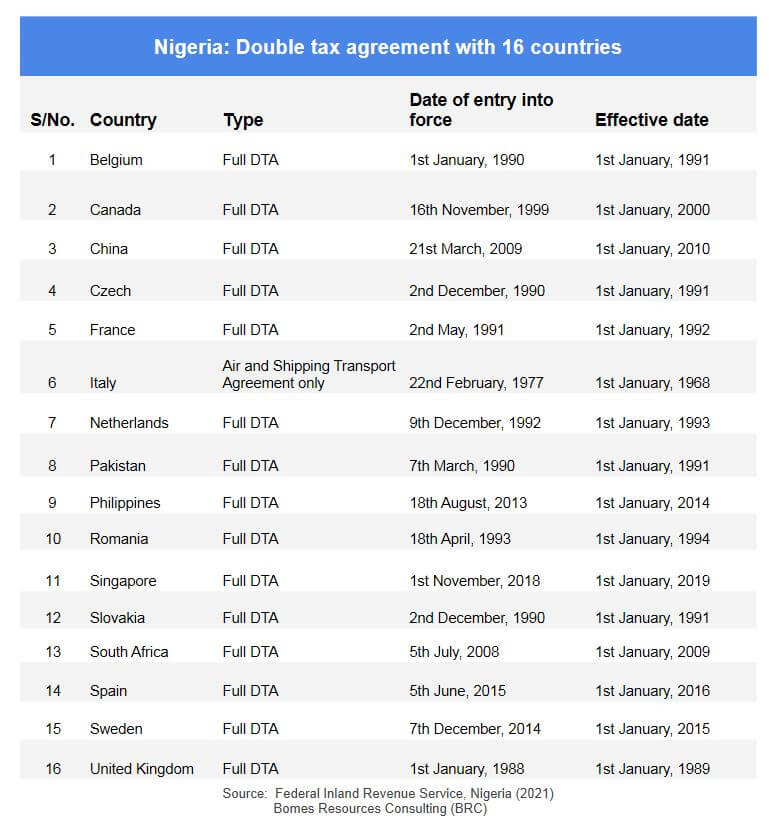Each country has its own tax laws. Nigeria, for instance, adopts the residency principle while some countries apply the source principle in deciding whether a taxpayer will pay tax in that jurisdiction. Hence, if a business is tax resident in Nigeria and generates income or profit in the United States, this could lead to double taxation or double non-taxation. Double taxation arises when a specific income or profits is taxed in two jurisdictions, that is, where the income is earned (the source state) or in the state of residence. On the other hand, double non-taxation occurs when a taxpayer evades tax on the profits or income in the source state and resident state. These issues may reduce the inflow of foreign direct investment and international taxation has created tax treaty as a solution.
A tax treaty is a written agreement between two countries that helps to lessen the risk of double taxation and double non-taxation. Furthermore, a tax treaty shows the category of income, tax treatment, where this income would be taxable (at residence, at source or both) and the timing for taxation. It also provides the Mutual Agreement Procedure (MAP) for settling conflicts arising from the execution of the agreement or in the allocation of taxing rights.
Which countries have a tax treaty with Nigeria?
Nigeria has tax treaties with sixteen (16) countries. They are Belgium, Canada, China, Czech Republic, France, Italy, the Netherlands, Pakistan, Philippines, Romania, Singapore, Slovakia, South Africa, Spain, Sweden, and the United Kingdom.

The National Assembly is yet to ratify tax treaties with Kenya, Mauritius, Poland, and South Korea. Under a tax treaty, residents of a contracting state pay tax on certain income at a lower rate. Foreign tax payable by taxpayers in these 16 countries is allowed as a credit against tax payable in Nigeria. If the scope of tax treaty does not cover a particular income, or if a country has no tax treaty with Nigeria, then a taxable person must pay tax at the standard rates and file a Nigerian tax return in line with the prescribed format.
Does Nigeria have a tax treaty with U.S (the United States of America)?
No. Nigeria does not have a tax treaty with the United States of America.

